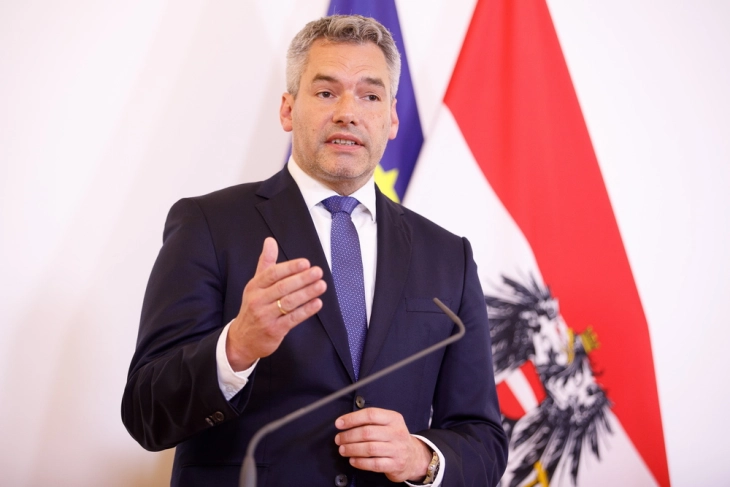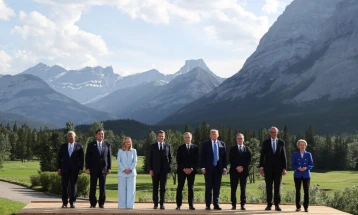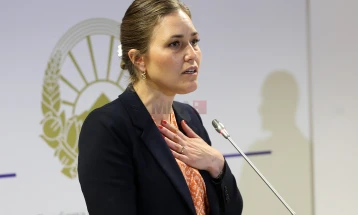Austria in limbo as chancellor to resign after coalition talks fail
- Austrian Chancellor Karl Nehammer said he planned to resign in the coming days after talks between his conservative party and the Social Democrats to form a new government collapsed on Saturday, casting the nation into a political crisis.

Vienna, 5 January 202 (dpa/MIA) - Austrian Chancellor Karl Nehammer said he planned to resign in the coming days after talks between his conservative party and the Social Democrats to form a new government collapsed on Saturday, casting the nation into a political crisis.
In a video message, Nehammer said he would also resign as leader of the Austrian People's Party (ÖVP).
His announcement came shortly after the party broke off coalition talks with the Social Democrats (SPÖ), some three months after general elections.
"It is evident that the destructive forces within the SPÖ have gained the upper hand," said Nehammer, confirming the end of these talks as well.
Nehammer's announcement came just hours after the ÖVP and SPÖ began discussions over forming a government earlier on Saturday, following the liberal NEOS party's withdrawal on Friday from weeks-long talks over what would have been a historic three-way coalition.
The talks were a series of attempts to prevent the far right from coming to power after it won parliamentary elections at the end of September.
Far-right fears
The far-right Freedom Party of Austria (FPÖ) emerged as the clear winner from the September vote, marking the first time since the end of World War II that a far-right party has won a parliamentary election in Austria.
However, no other party has been willing to work with the FPÖ or its leader, Herbert Kickl.
On Saturday evening, Nehammer made it clear that he was still not prepared to hold coalition talks with the FPÖ under Kickl.
"It is my deep conviction that radicals do not offer a solution to a single problem," said Nehammer.
However, his party's business wing favours a coalition with the FPÖ over the SPÖ.
Nehammer said he opposed the FPÖ under Kickl due to its pro-Russia stance and lack of differentiation from far-right groups.
SPÖ leader Andreas Babler blamed the conservatives who flirted with the far right for the failure of a potential grand coalition, as the centrist parties' tie-up would have been known.
Now Austria faces the threat of "a far-right chancellor," Babler said.
It is unclear who will succeed Nehammer, whether the ÖVP might negotiate with the FPÖ as a possible junior partner or whether new elections will be called.
Rumours of Sebastian Kurz's comeback
Austrian media reports citing conservative sources have recently suggested former chancellor Sebastian Kurz could become the next leader of the ÖVP.
Kurz governed as chancellor with the FPÖ from 2017 to 2019 and then with the Greens, but retired from politics in 2021 amid corruption investigations which are ongoing.
Pollsters see FPÖ on the rise
The next move must be decided by President Alexander Van der Bellen, FPÖ leader Kickl said, with a view to a possible government mandate, which he had previously been denied. "After the events of today, [the president] is under pressure to act."
Should new elections be held, the FPÖ could hope for a resounding victory after the latest polls signalled a further large increase in votes compared to the elections, suggesting the party could improve its result from 29% to around 35%.
Austria in economic crisis
Austria is in the throes of an economic crisis and at the same time has to make severe cuts in order to meet the EU criteria for financial stability.
Striking a balance between austerity measures and measures to boost the economy is considered the main task of a new government.
Any new Austrian government faces immense tasks which require a smoothly functioning coalition.
It faces structural problems including the pension system, which has long since ceased to be covered by contributions. The state has to spend a large part of the budget on supporting pension payments.
Due to expensive wage agreements, unit labour costs are no longer competitive from the point of view of the Industrial Association. Unemployment is around 7%.
MIA file photo











